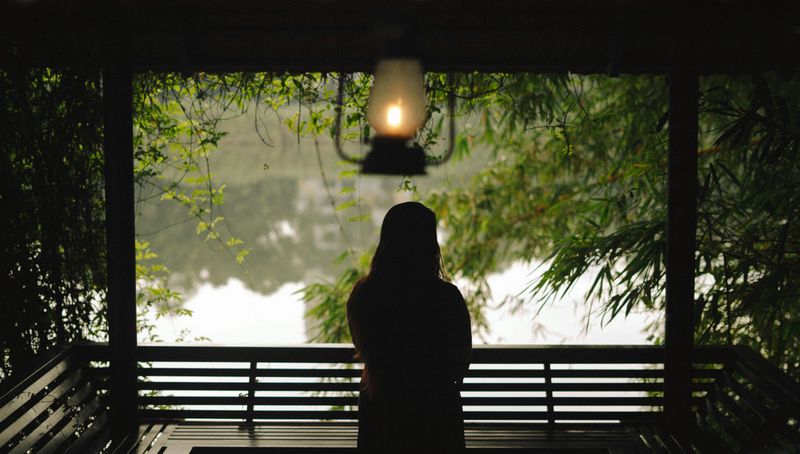Have you ever met someone who seems calm no matter what life throws their way? These naturally peaceful people aren’t just born that way – they practice specific habits that help them stay centered.
Learning these habits can help all of us find more peace in our busy lives. By making small changes to our daily routines, we can become more like those peaceful people we admire.
1. Gratitude as a Daily Practice
Ever notice how peaceful people rarely complain? That’s because they actively look for things to appreciate. Keeping a gratitude journal or simply taking mental notes throughout the day trains your brain to focus on the good rather than dwelling on problems.
The science behind this habit is fascinating – our brains literally create new neural pathways when we practice gratitude regularly. Even during difficult times, peaceful people find something to be thankful for, whether it’s a kind word from a friend or the beauty of a rainy day.
Start small by noting three things you’re grateful for each evening. Soon you’ll find yourself naturally noticing the positive throughout your day.
2. Boundaries Without Guilt
“No” is a complete sentence for naturally peaceful people. They understand that protecting their energy isn’t selfish—it’s necessary. By setting clear boundaries with work, relationships, and even technology, they preserve their inner calm.
Most of us feel guilty when turning down requests, but peaceful individuals recognize that saying yes to everything means saying no to their wellbeing. They communicate their limits clearly and kindly, without lengthy explanations or apologies.
Try practicing the pause—when asked to commit to something, say “Let me check my schedule and get back to you” rather than automatically agreeing. This small buffer gives you space to make decisions aligned with your needs.
3. Morning Mindfulness Moments
Peaceful people don’t immediately reach for their phones when they wake up. Instead, they take a few minutes to breathe deeply and set positive intentions for the day ahead. This simple morning ritual creates a foundation of calm that carries throughout their day.
Many find that just five minutes of quiet reflection before the day’s demands begin makes a huge difference in how they respond to stress later. The key is consistency rather than length.
You might try sitting quietly with a cup of tea, writing in a journal, or simply watching the sunrise. These quiet moments become an anchor that grounds you when life gets stormy.
4. Nature Connection Rituals
Rain or shine, peaceful people make time to connect with the natural world. Something magical happens when we step outside—our perspective shifts and problems that seemed overwhelming suddenly appear manageable. The Japanese practice of forest bathing (shinrin-yoku) confirms what peaceful people already know: nature heals.
Whether it’s tending to houseplants, walking in a local park, or watching birds at a feeder, these nature rituals provide a reset button for the nervous system. The rhythms of the natural world remind us to slow down.
Finding your own nature ritual doesn’t require a wilderness expedition. Simply noticing the changing seasons, feeling the sun on your face, or watching clouds pass overhead can bring profound peace.
5. Embracing the Pause Before Response
Watch a naturally peaceful person during conflict and you’ll notice something remarkable—they pause before responding. This tiny gap between stimulus and reaction is where their peace lives. While others might jump to defend or attack, they breathe and consider their words carefully.
This doesn’t mean they never feel angry or upset. They simply recognize that emotions make terrible drivers but excellent passengers. By creating space between feeling and action, they respond rather than react.
You can practice this habit by counting to three before answering in heated moments. Even this brief pause allows your prefrontal cortex (the rational part of your brain) to catch up with your emotional response, leading to more peaceful interactions.






